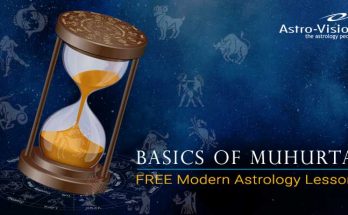Eternal Relevance
The Puranas and Itihasas deal with astrology offering valuable clues to planetary influences on humans. There is a key clue in the story of Nala and Damayanti, which occurs in the Mahabharata and is the core subject of the famous composition Naishada Charitra of Sriharsha. This story gains significance in astrological parlance, because the hero of the poem, King Nala who lives in regal opulence gets caught in the grip of Saturn. After going through terrible suffering he regains his lost kingdom after coming out of Saturn’s clutches. On many scores, this story has eternal relevance and the moral of this story needs to be understood by those who wish to overcome adversities caused by planets in inauspicious positions.
Talking of propitiation of planets to thwart the adverse consequences of planetary transits, why is it that Saturn alone assumes more importance than any other planet? Barring Jupiter and Venus, the rest are either total or part malefic, delivering evil results. Venus can also turn into a functional malefic when influenced by Kendradipati Dosha. But why is Saturn the most dreaded among all the planets?
Dreaded Transit
Saturn is slow when passing through a Zodiacal sign and consequently he influences the native for a longer duration, but only at a specified period of time. All planets in transit bear evil influences in all houses except the 3rd 6th and the llth (but Mantreswara says that Rahu, Ketu and Sun give benefic results in the 10th house apart from the 3rd, 6th and 1lth). One tolerates an injection, because the pain it causes lasts only for a short period but were the pain to remain for a long time, one would, of course, be concerned. Likewise, the length of time of Saturn,s transit is the first major concern.
Secondly, Saturn is Dukhakaraka or the significator of grief. All suffering is attributed to Saturn. So, when a planet exclusively has governance over grief as its principal portfolio that becomes scary.
Thirdly, the Sun denotes the soul (Atma); the Moon shows mind (manas). So these planets cannot be malefic for anyone. According to Laghu Parasari, Chapter l, Verse ll, neither the Sun nor the Moon can induce Ashtamadhipati Dosha attributed to the ownership of the 8th house. When a planet gets to rule a malefic house from either the Sun or the Moon, that planet must qualify as a first rate malefic and this applies to Saturn. The 6th is the house of the enemy. Saturn, by virtue of being the lord of Capricorn (6th house from Leo owned by the Sun), becomes an enemy of the
Sun; the Moon by owning Cancer, the 6th from Aquarius (owned by Saturn) becomes an enemy of Saturn. With these points before us let us take a look at the story of Nala.
Nala-Damayanti Episode
This story was narrated by Sage Brihadasva to Yudishtira and his brothers (excluding Arjuna who then had embarked on the journey seeking Pasupata from Mahadeva). Yudhishtira’s poser to the sage was whether anyone in human history had ever lived a more wretched life than himself. The sage answers this question with the story of Nala and Damayanti. Knowing that good fortune is an oscillating phenomenon, Brihadasva advises Yudhishtira to remain calm when things do not fare well. The message conveyed here is that when the period is adverse, one gets separated from one’s loved ones; one is reunited when the period turns favourable and that one has no control over the time factor.
King Nala was said to be well-versed in the Vedas and heroic. Damayanti was the the beautiful Princess of Vidarba kingdom and the only daughter of King Bhima. Two geese serve as messengers between Nala and Damayanti sparking love between them through descriptions of their respective charms. When King Bhima learns of his daughter’s state of mind, he announces a Swayamvara for finding an eligible groom for his daughter.
The swayamvara is fixed for an auspicious lunar day in an auspicious season on astrological factors. When Nala sets out for the Swayamvara he meets the gods Indra, Kubera, Varuna and Yama on the way. These celestial beings request Nala to be their messenger to Damayanti. Indra, the King of the celestials, says: “I have come to attend Damayanti’s Swayamvara with the other celestials. Please praise us before Damayanti and she is sure to marry one of us.”
Nala retorts: “You know very well, I am going there for the same purpose. Is it fair on your part to ask me to do this?”. Nevertheless, the Gods leave Nala with no option but to praise them before Damayanti. Since celestial anger can bring misery, Nala requests Damayanti to choose one of the Gods instead of him. But Damayanti says she will choose only him and then the gods cannot blame him. The gods understand Damayanti’s mind and assume Nala’s form. However, being exceptionally intelligent, Damayanti chooses the real Nala from the look alikes.
Saturn Angered
After the marriage is over, the Gods are on their way back when they meet Kali Purusha who they learn is on his way the Damayanti’s Swayamavara in the hope she would choose him. At this, the Gods laugh and say, “All is over. Damayanti has married a mortal by name Nala, rejecting everyone else.” Kali Purusha is infuriated. He decides that Nala and Damayanti should lose their kingdom and that they should suffer the pangs of separation.
Kali Purusha may be taken to be none else than the planet Saturn. This view is based on the legend that Nala is supposed to have visited the temple of Saturn in the holy town of Tirunallar (Tamil Nadu) to overcome his misery.
The marriage between Nala and Damayanti earned them both the wrath of Saturn, who had been coveting Damayanti.
Saturn Creeps in
One morning, King Nala recites his morning prayer with a blemish; he has not washed his heel after attending the calls of Nature. This was the opportunity Kali Purusha was waiting for for twelve years; without a minute’s delay, he moves into Nala’s body.
Kali Purusha (Saturn) meets Pushkara and exhorts him to play a game of dice with Nala assuring him of victory. Elated by this offer, Pushkara challenges Nala to a game of dice. which Nala accepts. One by one he loses all his gold, silver, robes staking them one after the other. Finally he loses even his kingdom. Pushkara, knowing that Nala has lost everything, asks whether the game could go on with Damayanti as a stake. At this stage, Nala stops playing and comes away with Damayanti.
Pushkara, the king now, issues an ordinance that anyone helping Nala in any manner would be executed. Consequently Nala is forced to spend three nights on the outskirts of the city surviving on only water. Unable to see Damayanti suffer, Nala requests her to go to her father’s kingdom where he says she could be comfortable. Damayanti wants Nala to accompany her so that both can stay in the palace. But King Nala is not willing who. Would be happy to see him in this plight? So, they drop the idea of going there.
Courtesy: MODERN ASTROLOGY (Dr E. S. Neelakantan)








One Comment on “Sadesathe In The Puranas”